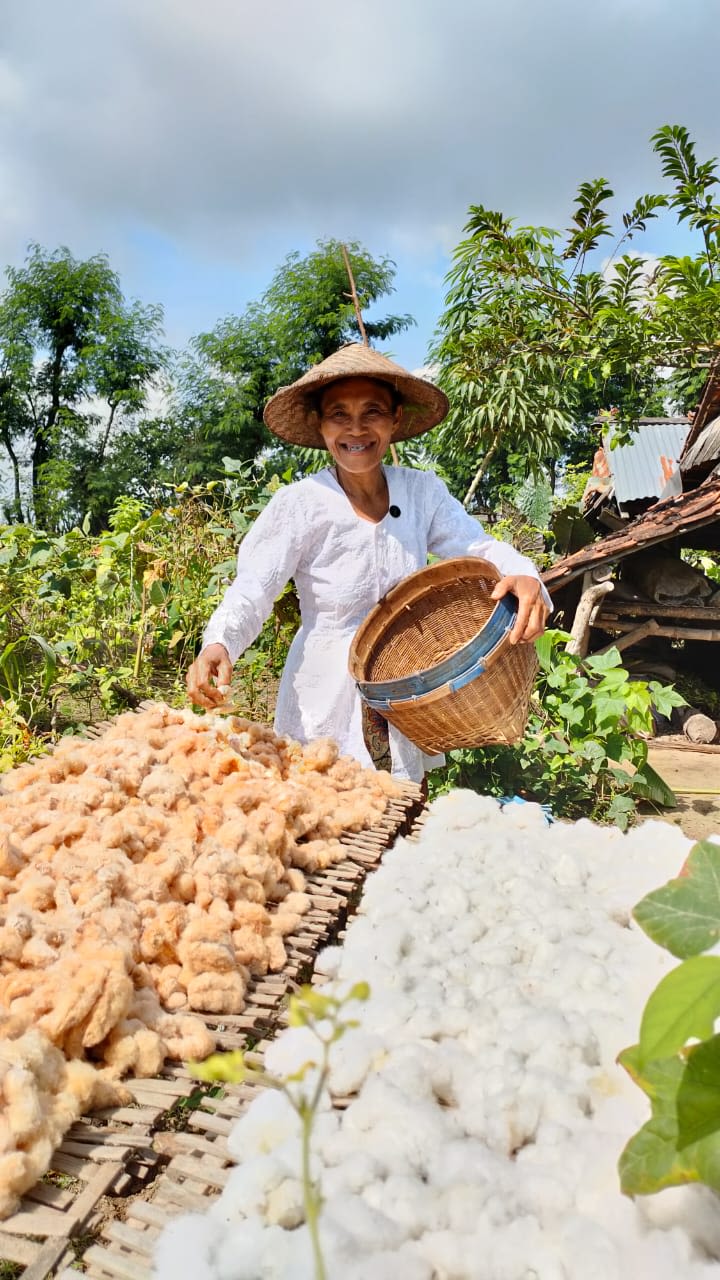Circular Livelihoods: Creating a circular yarn from textile waste in Indonesia

- Written byKatie Moss
- Published date 20 October 2022

A project working with smallholder farmers and traditional weaving communities in rural Indonesia is prototyping a new circular yarn from textile waste – reducing the environmental impact of the market and creating new, sustainable livelihoods for communities there.
Indonesia has one of the fastest growing consumer markets for textiles and faces a growing problem with textile waste – yet many farmers and rural artisans, such as weavers and spinners – particularly women – rely on this industry.
The Circular Livelihoods Project is the first of 5 partnerships formed by the New Landscapes Pilot Scheme, led by UAL’s Fashion, Textiles and Technology Institute (FTTI) and supported by the British Council. 5 pairs of SMEs in the UK & ODA countries have received funding, academic research support and access to facilities to work on mutually beneficial projects that promote the cultural, social and environmental values of a sustainable global fashion and textiles sector. This project was led by London-based designer and independent researcher Zoë Powell and co-founder of social enterprise SukkhaCitta, Bertram Flesch in Jakarta.
A significant achievement for the Circular Livelihoods project team was the sourcing of machinery to help process the fibres into yarn, including a ginning machine to separate seeds from cotton fibres, and a shredding machine to take textile waste back to fibres ready to be spun.
The machines will enable the regenerative cotton project to rapidly scale up. The team are aiming to boost cotton production to 5 tons next year (a 250% increase compared to 2021). By including several other farms, SukkhaCitta is also currently preparing to grow cotton regeneratively – ultimately providing better livelihoods for more than 100 farmers.
The machines are small enough to be used in local communities rather than large factories, and can be made and adapted locally, so there is no reliance on expensive imports, and it creates new areas for employment around machinery maintenance.
Artisans working with SukkhaCitta have seen an average increase in income of around 60% - a staggering figure that could be the difference between a girl going to university or finishing education in primary school.
The team has produced the first spinning prototypes and will continue to explore the potential for a circular fibre made with cotton from more environmentally friendly regenerative farms and recycled plant-fibre textile waste - such as banana stems. Through continued training and knowledge sharing with rural smallholders and weavers, they hope the skills will empower rural communities.